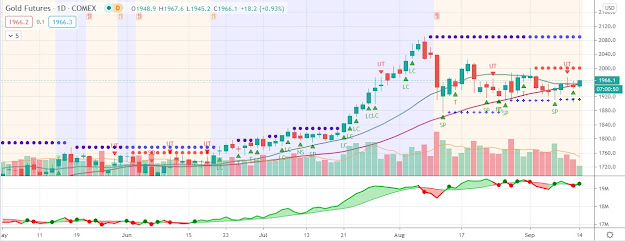Gold oscillated between gains and losses
The gold price held near $1,725 per ounce Monday morning as the gold price digested the Greek approval of a new austerity program necessary to secure its next round of financial assistance. Gold oscillated between gains and losses on Monday while the euro currency surrendered nearly its entire gain versus the U.S. dollar. The price of gold reached an overnight high of $1,735, but relinquished its gains as the U.S. dollar pared its losses against a basket of foreign currencies.
On Sunday evening the gold price showed a muted reaction to news that the Greek parliament approved austerity measures necessary to receive €130 billion in new bailout funds. The response of the euro currency was also rather tepid, as it inched fractionally higher to 1.3195 against the U.S. dollar. The financial assistance will allow Greece to meet a March 20th deadline for a €14.5 billion bond repayment, without which a default would have occurred. However, the latest austerity program included €3.3 billion in job, wage, and pension cuts – which had been items of serious contention in recent weeks and led to significant rioting in Athens over the weekend. Greece’s finance minister, Evangelos Venizelos, stated to officials that “The question is not whether some salaries and pensions will be curtailed, but whether we will be able to pay even these reduced wages and pensions. When you have to choose between bad and worse, you will pick what is bad to avoid what is worse.”
In the U.S., the week ahead is filled with several items likely to serve as catalysts for the gold price. The economic calendar is particularly heavy this week, beginning with the January Retail Sales report on Tuesday. Wednesday’s schedule includes the MBA Mortgage Index and Empire Manufacturing Index for February, along with the afternoon’s release of the most recent Fed minutes. On Thursday, Weekly Jobless Claims, Housing Starts, the Producer Price Index (PPI), and Philadelphia Fed Index will all be reported. Lastly, the Consumer Price Index (CPI) – another key inflation gauge – and the January Leading Indicators data are set for release.
On Sunday evening the gold price showed a muted reaction to news that the Greek parliament approved austerity measures necessary to receive €130 billion in new bailout funds. The response of the euro currency was also rather tepid, as it inched fractionally higher to 1.3195 against the U.S. dollar. The financial assistance will allow Greece to meet a March 20th deadline for a €14.5 billion bond repayment, without which a default would have occurred. However, the latest austerity program included €3.3 billion in job, wage, and pension cuts – which had been items of serious contention in recent weeks and led to significant rioting in Athens over the weekend. Greece’s finance minister, Evangelos Venizelos, stated to officials that “The question is not whether some salaries and pensions will be curtailed, but whether we will be able to pay even these reduced wages and pensions. When you have to choose between bad and worse, you will pick what is bad to avoid what is worse.”
In the U.S., the week ahead is filled with several items likely to serve as catalysts for the gold price. The economic calendar is particularly heavy this week, beginning with the January Retail Sales report on Tuesday. Wednesday’s schedule includes the MBA Mortgage Index and Empire Manufacturing Index for February, along with the afternoon’s release of the most recent Fed minutes. On Thursday, Weekly Jobless Claims, Housing Starts, the Producer Price Index (PPI), and Philadelphia Fed Index will all be reported. Lastly, the Consumer Price Index (CPI) – another key inflation gauge – and the January Leading Indicators data are set for release.




Comments
Post a Comment